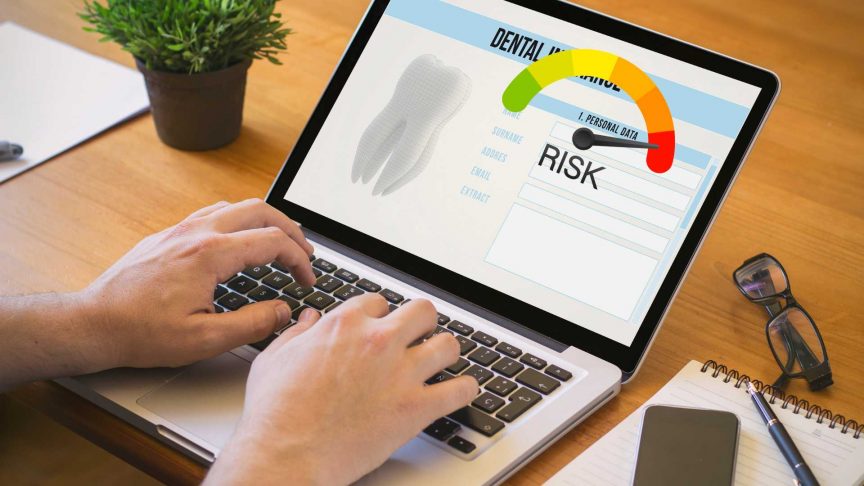In my journey of performing over 300 cybersecurity assessments specifically for dental practices, I have gained some important insights. Alarmingly, less than 10% of dental offices have adequate cybersecurity. I want to share my findings with you, particularly those who manage dental practices and are responsible for securing their digital assets.
The Importance of Cybersecurity in Dental Practices
The first thing to realize is the paramount importance of cybersecurity in the dental industry. Many may question, “Why would anyone target a dental office?” But the truth is, medical offices, including dental practices, store a trove of personal information about their patients. This includes sensitive data such as names, social insurance numbers, medical histories, insurance details, and financial information.
The value of this information on the dark web is astonishingly high, which has led to a surge in cyber-attacks on healthcare providers, including dental offices. In fact, according to stats from the Information Privacy Commissioner in Canada and the HIPAA “Wall of Shame” in the US, in North America, there is an average of 800 reported healthcare breaches every year, and growing.
Insights from Cybersecurity Assessments
Through conducting cybersecurity assessments, the key takeaways I have uncovered are as follows:
1. The Human Element is Often the Weakest Link
Despite advancements in cybersecurity technology, it’s often the human element that proves to be the most vulnerable to cyber threats. The lack of understanding about phishing attacks, password safety, and safe browsing practices can leave a dental office exposed to a breach. Continuous education and regular training can greatly reduce this risk.
2. Outdated Systems are a Major Risk
Many dental offices continue to use outdated systems or software, simply because they still function. Unfortunately, these often lack the necessary security patches to protect against modern cyber threats. Regularly updating systems and software is crucial to maintaining security. New managed security services leverage automation to make this robust and affordable.
3. Backups are Underutilized
Regular data backups can make the difference between a minor inconvenience and a practice-ending event in the case of a ransomware attack. Yet, during my assessments, I found a significant number of practices lacked adequate backup procedures. Many have inadequate recovery time, and allow way too much potential data loss.
4. Underinvestment in Cybersecurity
Due to the misconception that small dental practices are not attractive targets for cybercriminals, many offices underinvest in cybersecurity. However, this false sense of security makes these practices attractive targets for cybercriminals, who view them as low-hanging fruit.
5. Compliance Does Not Equate to Security
While compliance with regulations such as privacy laws and college guidelines is important, it should not be mistaken for total security. Many dental practices believe that if they are compliant, they are secure. However, compliance standards often lag behind the rapidly evolving threat landscape.
Practical Steps Towards Cybersecurity
To enhance cybersecurity in your dental practice, consider the following steps:
- Train Your Staff: Equip your staff with the knowledge and skills they need to identify and prevent potential cyber threats. Regular, updated training is crucial.
- Regular Updates: Make sure your systems and software are up to date. If you’re using outdated tech, upgrade. Remember, cybercriminals often exploit known vulnerabilities in outdated systems.
- Implement Regular Backups: Regularly back up sensitive data, make sure that your backups are secure, and test the backup to ensure it is viable and meets your recovery time needs.
- Invest in Cybersecurity: Allocate appropriate resources for cybersecurity. This could include hiring a dedicated cybersecurity professional or outsourcing this task to a reputable third-party provider.
- Go Beyond Compliance: Don’t just aim for compliance, aim for robust security. Use compliance as a baseline and build upon it to create a comprehensive cybersecurity strategy.
Dealing with the Complexity of Cybersecurity
Cybersecurity is not a one-size-fits-all solution. Every dental practice is unique, with its own specific requirements and challenges. This means that while the principles of good cybersecurity remain the same, the implementation can vary greatly.
Understanding the unique needs of your practice is a crucial first step in building an effective cybersecurity strategy. For example, a practice that mainly uses cloud-based solutions might need to focus more on secure access control and data encryption. In contrast, a practice using local servers would need to consider physical security measures and robust network firewalls.
Embrace the Culture of Cybersecurity
Cybersecurity should not be seen as a burden or an unwelcome cost. Instead, it should be seen as part of the culture of your practice, something that is as fundamental as infection control in a dental office. Just as you maintain high infection control standards to protect the physical health of your patients, you should uphold high cybersecurity standards to protect their digital information.
Staff should be regularly reminded of the importance of cybersecurity and encouraged to take an active role in maintaining it. Just as everyone washes their hands, everyone should also know how to spot a phishing email or why it’s important to regularly update their passwords.
Future of Cybersecurity in Dental Practices
The landscape of cybersecurity is ever-evolving, and so are the threats. Cybersecurity measures that were once considered advanced can quickly become obsolete. It’s therefore essential to stay ahead of the curve and ensure your practice continues to adapt its cybersecurity measures to meet these evolving threats.
Artificial Intelligence (AI) and Machine Learning (ML) technologies are already starting to play a crucial role in cybersecurity, providing proactive defenses by identifying and responding to threats in real-time. At the same time, AI now presents one of the biggest risks, especially regarding its ability to create even more complex phishing emails and leverage other tactics against healthcare computer systems.
My experiences in conducting cybersecurity assessments for dental practices have emphasized the critical importance of robust cybersecurity measures in this industry. Every practice, no matter how small, is a potential target for cybercriminals, and it’s essential that these practices take proactive steps to protect themselves and their patients.
The road to effective cybersecurity might seem daunting, but by understanding the risks, implementing effective policies and procedures, and fostering a culture of cybersecurity awareness through continuous training, dental practices can greatly strengthen their defenses.

